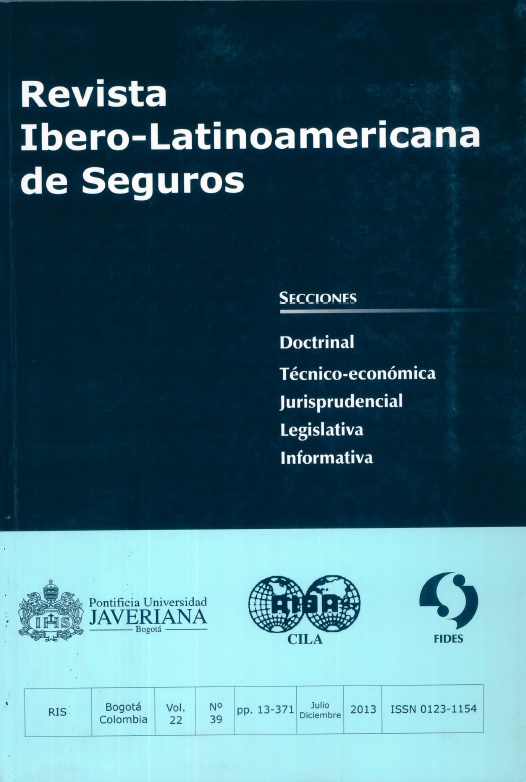Resumen
El artículo 42 de la Ley General de Seguros del Ecuador, establece la facultadde presentar un reclamo administrativo ante el ente de Control es decir,ante el Superintendente de Bancos y Seguros si la empresa aseguradorano paga el reclamo dentro de los cuarenta y cinco días, contados desdela fecha de la presentación de los documentos, que según la póliza, sean necesariospara probar la ocurrencia del siniestro y la cuantía de la pérdida yno propone objeciones o las propone sin fundamentos o cuando habiendollegado a un acuerdo no paga dentro del plazo fijado. Al resolver el reclamoadministrativo la Superintendencia de Bancos y Seguros no entra a analizar sila empresa aseguradora al objetar el reclamo cumplió con su obligación deobjetar dentro del plazo enunciado y en forma fundamentada, sino que se atribuye facultades jurisdiccionales y decide como un juez de derecho, motivo por elcual, lo que resuelve el conflicto entre las partes es un acto administrativo y no unasentencia o laudo arbitral Por los anteriores motivos se invita a reflexionar sobrela reforma del artículo 42 de la Ley General de Seguros.Esta revista científica se encuentra registrada bajo la licencia Creative Commons Reconocimiento 4.0 Internacional. Por lo tanto, esta obra se puede reproducir, distribuir y comunicar públicamente en formato digital, siempre que se reconozca el nombre de los autores y a la Pontificia Universidad Javeriana. Se permite citar, adaptar, transformar, autoarchivar, republicar y crear a partir del material, para cualquier finalidad (incluso comercial), siempre que se reconozca adecuadamente la autoría, se proporcione un enlace a la obra original y se indique si se han realizado cambios. La Pontificia Universidad Javeriana no retiene los derechos sobre las obras publicadas y los contenidos son responsabilidad exclusiva de los autores, quienes conservan sus derechos morales, intelectuales, de privacidad y publicidad.
El aval sobre la intervención de la obra (revisión, corrección de estilo, traducción, diagramación) y su posterior divulgación se otorga mediante una licencia de uso y no a través de una cesión de derechos, lo que representa que la revista y la Pontificia Universidad Javeriana se eximen de cualquier responsabilidad que se pueda derivar de una mala práctica ética por parte de los autores. En consecuencia de la protección brindada por la licencia de uso, la revista no se encuentra en la obligación de publicar retractaciones o modificar la información ya publicada, a no ser que la errata surja del proceso de gestión editorial. La publicación de contenidos en esta revista no representa regalías para los contribuyentes.


